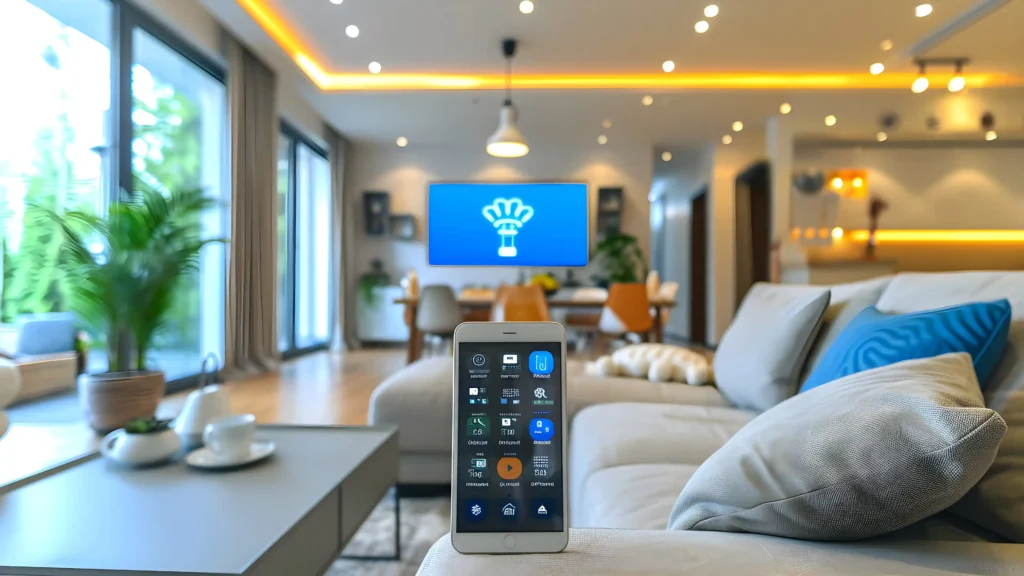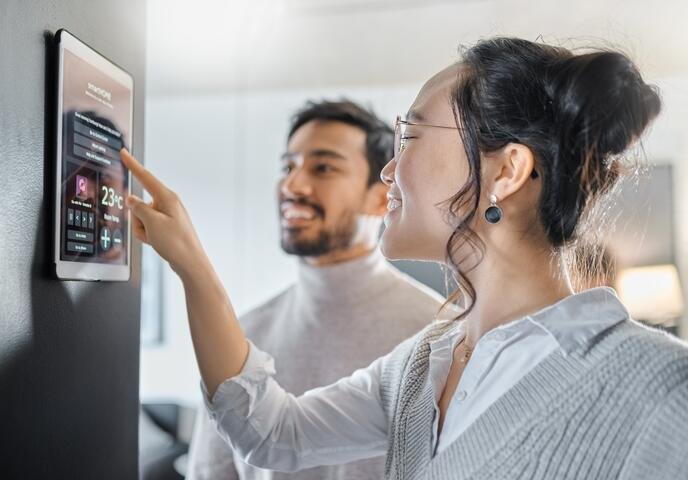As we move further into 2025, smart home technology is no longer just a luxury—it has become an integral part of modern lifestyles across Tier 1 countries such as the United States, United Kingdom, Canada, and Australia. The rapid advancements in artificial intelligence (AI), Internet of Things (IoT), and home automation are shaping how we interact with our living spaces. These innovations offer unparalleled convenience, enhanced security, energy efficiency, and a more personalized home experience. This blog explores the key smart home technology trends transforming daily living in 2025 and how you can benefit from them.
The Evolution of Smart Home Technology in 2025
Smart home technology has evolved beyond simple voice-activated devices or connected light bulbs. Today’s systems are powered by AI and machine learning, allowing homes to understand and adapt to residents’ behaviors. This evolution is driven by growing consumer demand for seamless integration, intuitive control, and sustainability.
In 2025, smart homes are not isolated devices but interconnected ecosystems where everything from climate control to security cameras communicates and works together. This connected approach is revolutionizing lifestyle choices, making daily tasks easier and homes smarter than ever.
Key Innovations in Smart Home Technology
AI-Powered Voice Assistants
AI-powered voice assistants like Amazon Alexa, Google Assistant, and Apple Siri have become more sophisticated in 2025. They not only respond to commands but also anticipate needs by learning routines and preferences. These assistants manage calendars, control smart appliances, play media, and even offer wellness reminders, making them essential hubs for smart home control.
Advanced Home Security Solutions
Home security has reached new heights with AI-enabled surveillance cameras, facial recognition, and smart doorbells. These systems provide real-time alerts to homeowners’ smartphones and enable remote monitoring, offering peace of mind and proactive protection.
Energy-Efficient Devices
With sustainability at the forefront, smart thermostats, lighting, and appliances are designed to optimize energy usage based on patterns of occupancy and weather forecasts. These devices help homeowners reduce electricity bills and their environmental footprint without compromising comfort.
Smart Kitchen Innovations
The kitchen is becoming a hub of smart technology, featuring connected refrigerators that monitor food freshness, ovens with recipe-guided cooking, and intelligent coffee makers that prepare your brew on schedule. These tools reduce waste and streamline meal preparation.

Enhancing Daily Life with Smart Home Technology
Smart home innovations in 2025 impact daily living in multiple ways:
- Convenience and Automation: Automate everyday tasks like adjusting lighting, controlling temperature, or locking doors. Voice control and smartphone apps enable management from anywhere.
- Improved Security: Advanced security systems provide constant monitoring, automated threat detection, and instant alerts, protecting families and property.
- Energy Management: Intelligent systems analyze usage to conserve energy, reducing costs and supporting green living.
- Personalized Comfort: Smart lighting and climate systems adapt to individual preferences, enhancing the home environment.
- Health and Wellness: Some smart homes now integrate air quality sensors and wellness monitoring devices to promote healthier living.
Creating a Connected Home Ecosystem
A defining trend in 2025 is the seamless integration of devices into a unified smart home ecosystem. Instead of controlling each device separately, homeowners use centralized hubs or apps to manage their entire home environment effortlessly.
This integration enables sophisticated routines, such as:
- Morning Wake-Up Routines: Gradually brightening lights, playing favorite music, and starting the coffee maker automatically to start the day right.
- Smart Entertainment: Voice-activated multi-room speakers and smart TVs deliver immersive entertainment tailored to personal preferences.
- Remote Monitoring and Control: Whether at work or traveling, homeowners can check on their homes, adjust settings, and receive alerts in real time.
Overcoming Challenges in Smart Home Adoption
While the benefits are clear, some challenges remain in adopting smart home technology:
- Privacy and Security Concerns: As homes become more connected, data privacy is a major consideration. Manufacturers are responding with improved encryption, transparent policies, and user controls.
- Complexity and Usability: The vast array of devices can be overwhelming, but user-friendly interfaces and voice commands are making smart homes accessible to all.
- Cost Factors: Though prices for smart devices are decreasing, initial setup can still be costly. However, the long-term savings on energy and enhanced security often justify the investment.
What the Future Holds for Smart Homes
Looking ahead, these emerging trends promise to further enhance smart living:
- Predictive AI Automation: Homes that proactively adjust settings by predicting user needs without manual input.
- Deeper Health Integration: Smart homes will increasingly support health monitoring and wellness coaching through wearable integration and environmental sensors.
- Sustainability Innovations: Integration with renewable energy systems like solar panels and home batteries will become standard.
- Augmented Reality Interfaces: New ways to interact with smart homes through AR glasses or holographic displays.
Smart home technology in 2025 is transforming the way we live by combining convenience, security, and sustainability into an integrated lifestyle experience. Whether you want to reduce energy costs, enhance home security, or simplify daily routines, smart home innovations offer tailored solutions to meet your needs.
As technology continues to evolve, embracing these smart living trends can significantly improve your quality of life. Start by integrating a few smart devices, and gradually build a connected home ecosystem that makes your living space safer, more efficient, and more enjoyable.

